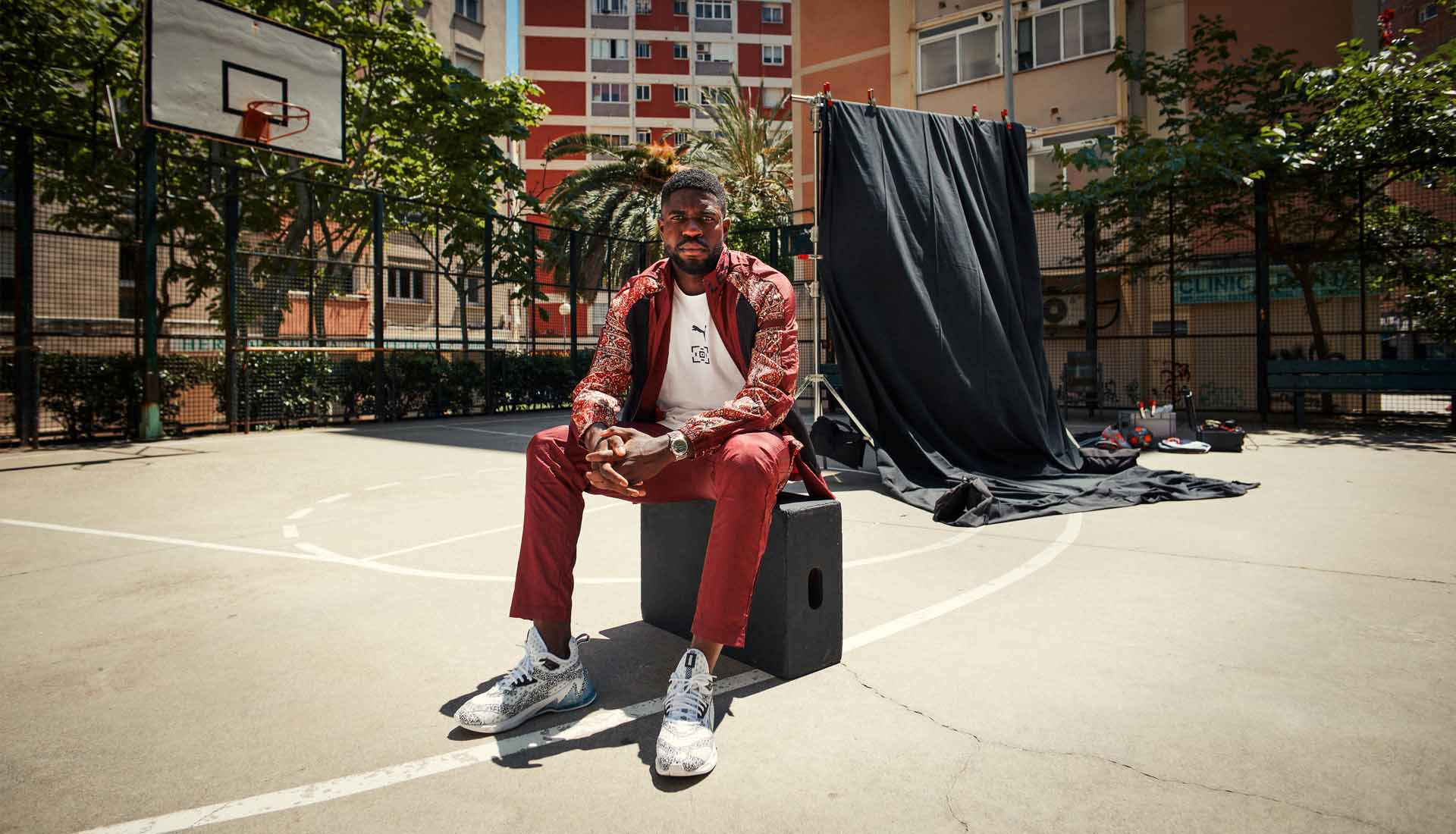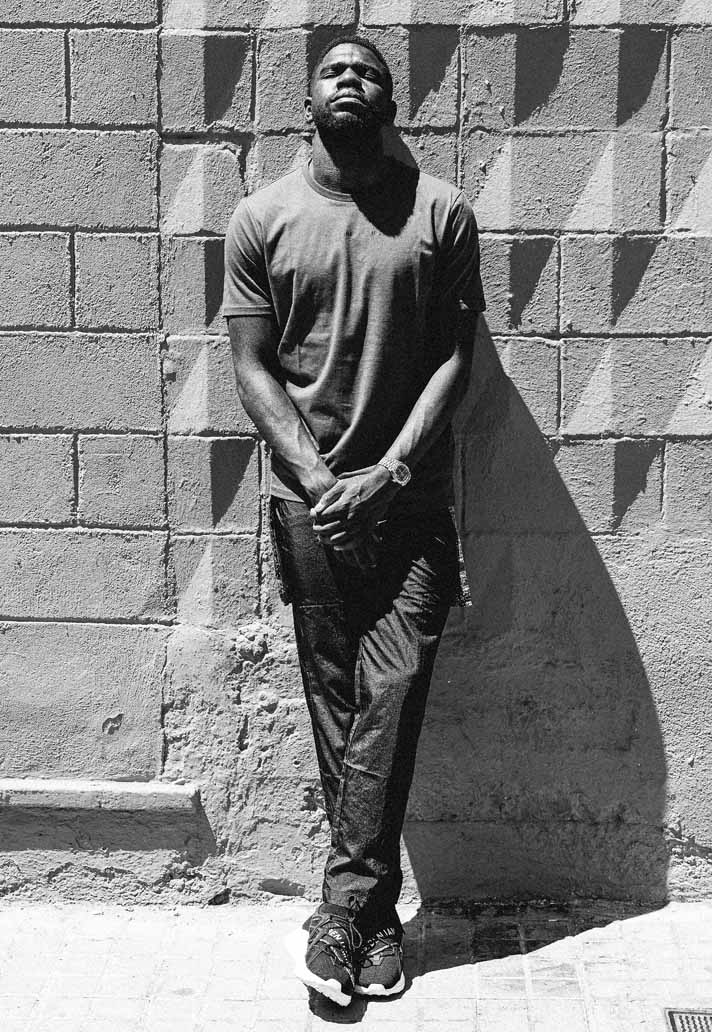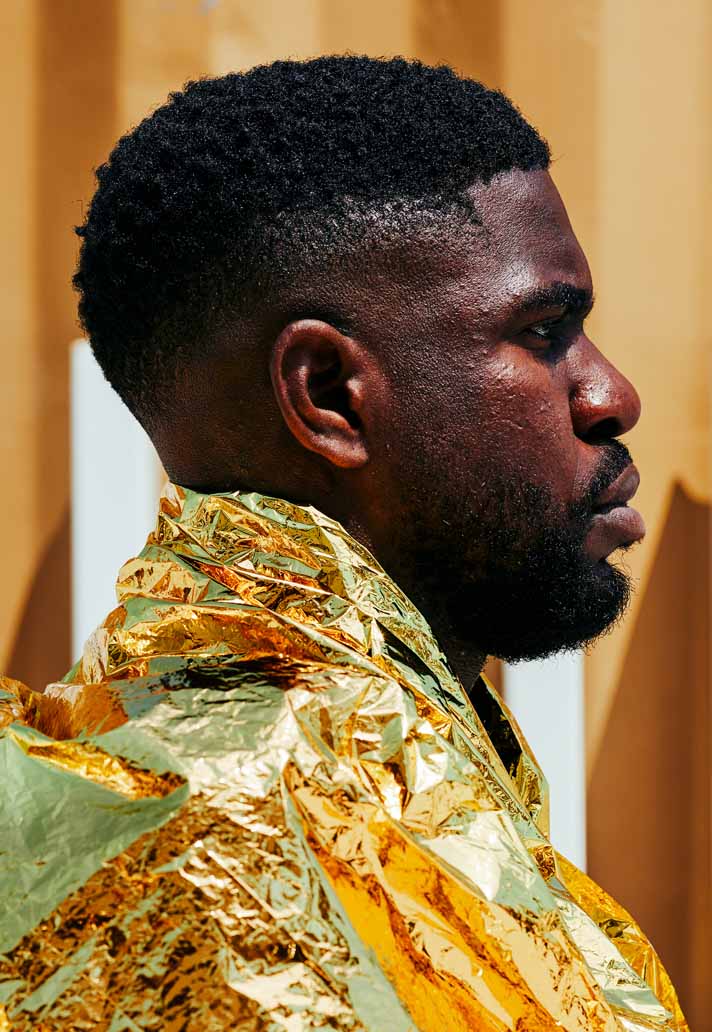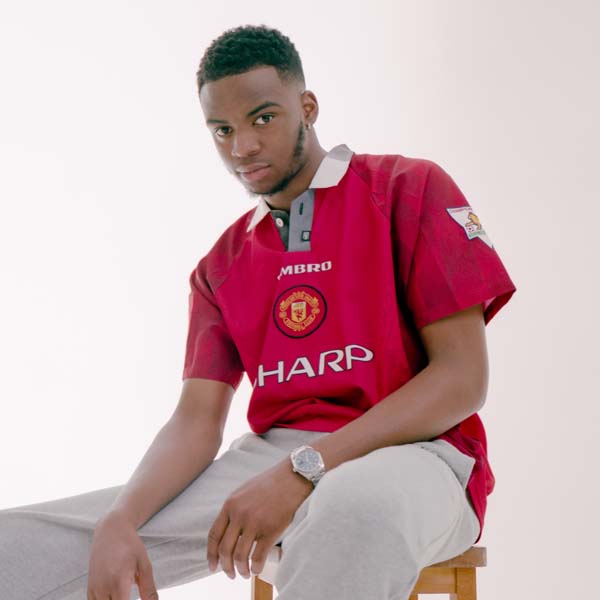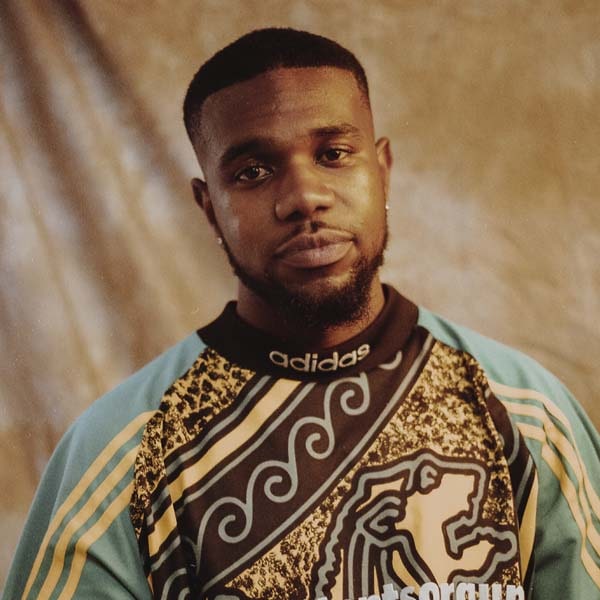Just what does it take to be a winner? For Samuel Umtiti it’s much the same as you’ll hear from any other professional footballer: hard work, dedication, the usual. But unlike most fellow professionals, his hard work and dedication has taken him all the way to the top, nestling him in among a group of exciting young French talent that can now be referred to as World Champions.
We’re sitting opposite the 25-year-old Coupe du Monde winner for SoccerBible Magazine Issue 13, and he's displaying the same calm composure that he’s renowned for on the pitch, every move – and in this case answer – measured to perfection. “We think that winning is easy when we win often or almost every time, but I know that winning is not easy. You have to give all you have.”
They’re words that are given more weight when they come from a man who has lifted the ultimate prize in world football. You’d think that it’d be easy to get carried away with the success, blinded by your achievements, making you lose focus and motivation for the future. Not for Umtiti, though. “The reality is that we won the World Cup. But for me, nothing changed; we achieved our childhood dream, then life goes on. There are other goals to achieve at club level. So after winning it was back to normality.”

As we attempt to segue into our next question, Umtiti’s answer to the last presents a hard concept for us to wrap our heads around: winning the World Cup and then just carrying on as if nothing had really happened. It’s admirable when you think about it, and perhaps it’s what separates top-level athletes from everyone else. Perhaps it’s one of the key qualities you have to have as a professional, the very definition of the word in this sense. This is their job, after all. “You must work. Working makes you succeed and achieve your dreams.”
But that working ethos and the best intentions for achieving success at club level were hampered by a knee injury that kept Umtiti out for five months in the season that followed World Cup success. Now he’s back, working hard to help bring the European glory that Barcelona are so desperate for. Two contrasting summers, but both with the focus on hard work and the success that will inevitably follow. Where last summer was punctuated with triumph though, this summer’s about rejuvenation, ensuring he’s at his best for the 2019/20 season. “You have to believe in yourself, work, be rigorous and time will reward you. I’ll still keep on working this summer because I need it to ensure I start next season in a good way after the problems I had during this season.”

For a man who has a reputation for being somewhat jovial, the conversation had taken a turn towards somewhat sombre territory, that trademark smile missing for a time. We navigate for safer, happier waters, taking Umtiti back to the beginning, hoping to veer away from what has obviously been a difficult time for a man who’s not been able to do what it is that he’s always done. “I was five or six years old and I was watching football games on TV. I don’t even remember the teams, but looking at those games on TV inspired me to practise football. When I had the time, when I had a ball, I played outside.” The smile creeps back onto the corners of his mouth, memories of his time growing up around the pitch of his hometown club Menival serving to introduce the levity we were after. “I fell in love when I watched the Champions League. I was with my mother, I was young. The music, the intense moments, the pressure – it all made me fall in love with football at that time.”
Witnessing the human side of a person that most people only ever see through the medium of television is incredibly humbling. These warriors that we often place on pedestals, who put everything on the line day after day, week after week in the pursuit of success for their club, they’re still just people.
As a child, Umtiti was no different to us all. He liked video games – “The first time my mother bought me FIFA, I was so happy” – he lived for football, and he idolised those players that he saw lighting up the screen each week. But even at a young age he still had an understanding of the intricacies of the game and the value of different attributes on the pitch. “I liked offensive players like Kaka and Ronaldinho. You need people who are capable of creating magical moments, to dribble and to do a fake pass, but also others who have a strong character and are crazy on the pitch. I liked both. I liked players like Ronaldinho and players like Gattuso at the same time.” Maybe it’s this appreciation for all the aspects of the game that saw him transition so smoothly from life as a prolific striker on the pitches of his childhood to one of the best defenders in the world.
As is often the case when we arrive at the subject of influences, Umtiti immediately references one person above all others as being key to the success he has enjoyed. “I’d say my mother. The way she educated me, the values she instilled in me, it helped me a lot in the football environment. I learnt to always work more and more, to never give up. My mother is a warrior, I owe her a lot.”
Aside from his mother, Umtiti is also quick to acknowledge the expanded network of people that helped him in his development as he was plucked from relative obscurity by Lyon, with whom he enjoyed a very successful period before his move to Barcelona in 2016. “I’m lucky to have met good coaches when I was younger. They helped me to reach a certain level and to believe in my dreams of being able to play for big clubs, and for my country during the World Cup.” We’re back to the World Cup again, but who can blame him. A year on and it must still feel amazing, we suggest, thinking about what he and his teammates achieved. “Yes, those feelings are still here. Months have passed but people talk to me about it every day,” he explains. “When I meet French people, it’s still a vivid memory and I think we are going to talk about it for years. But in three years, the next World Cup starts and we will have to move on. I hope we will win it again, but in the meantime let’s enjoy it!”

As our chat nears its conclusion, we probe to see what the future holds beyond football. “When I finish my career as a player, I will think about it for sure,” he says. “Football is my life. I’m in this world during the morning, the afternoon and at night, and I must keep on evolving in the football world. I think I will stay and become a football coach. I live for it, it makes me feel happy.” And there it is again, the irresistible grin, back in full force.

Read the full feature with Samuel Umtiti in SoccerBible Magazine Issue 13. Pick up your copy here.
